Clive Barker adaptations, ranked
- Oops!Something went wrong.Please try again later.
- Oops!Something went wrong.Please try again later.
- Oops!Something went wrong.Please try again later.
- Oops!Something went wrong.Please try again later.
- Oops!Something went wrong.Please try again later.
Journeyman artist Clive Barker is a painter, screenwriter, film director, but most of all an author of all things spooky and weird. Born in Liverpool in 1952, Barker spent the late-'70s working in avant-garde theater before moving into horror literature the following decade. The years 1984 and 1985 saw the release of his six-volume Books of Blood series, which contain some of the author's most notorious short stories, such as "Rawhead Rex" and "Midnight Meat Train." Interest in Barker's stories from the film community was immediate, and the first adaptation of his work was George Pavlou's Rawhead Rex in 1986. Barker then made his directorial debut in 1987 with Hellraiser, which was based on his own story: The Hellbound Heart.
Yet, in spite of Barker's unrivaled success in the world of literature (only Stephen King could feasibly claim a spot above Barker as the most well-known creator of horror), his films have more often than not turned out to be studio-negotiated facsimiles of his classic tales rather than proper, respectful adaptations. However, later adaptations of Barker's work have been amongst the best. In honor of the fan-favorite author, we've ranked Clive Barker's film adaptations below, from worst to best.
15. <em>Dread</em> (2009)
Produced by Clive Barker and based on his short story "Dread," from Books of Blood: Volume Two
Dread is a contemptible film, one of the most ceaselessly putrid and repellent things to ever see release, a "motion picture" which begins with a young mother receiving what can only be described as an "axe-cam" to the face and features a climax solely constructed around watching a young woman starve to death. It's yet another Saw or Hostel clone, where unlikable characters trap each other in rooms and commit violence upon one another, though it possesses the dubious distinction of being the most aggressively ugly and the least bound by plot than any other lowly imitator.
Ostensibly, it's a story about university students who conduct a study of fear — but really it's a collection of poorly rendered images in the order of something vaguely gesturing towards a narrative. Stephen (Twilight's Jackson Rathbone, sporting an improbable wig) wishes to use the experiment to delve deeper into his regret over his brother's tragic death, while Quaid (Shaun Evans) wants to use the fears of others to better understand the brutal axe murder of his parents when he was just a boy. None of this pays off in any fashion, as potentially interesting plot threads are rapidly dropped in favor of a typical maniac plot. This is a movie so obsessed with flaying the bodies of prone, naked women that it never for one moment stops to consider its own plot, characters, or morality. There may be a workable version of this story, but why this one had to be so positively dyspeptic remains an unanswered question.
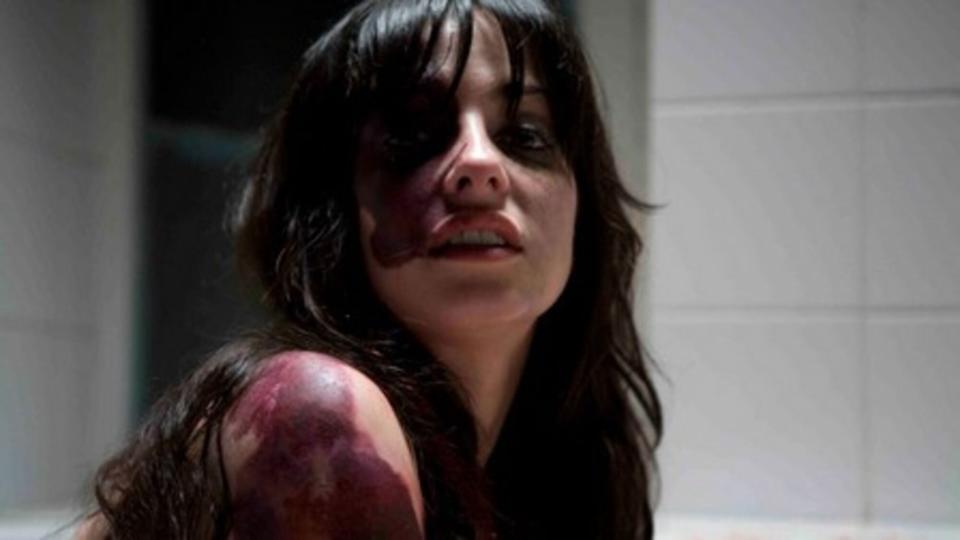
14. <em>Book of Blood</em> (2009)
Produced by Clive Barker and adapted from Books of Blood: Volume One
After the mysterious death of a young woman in her own bedroom, paranormal investigator Mary Florescu (Sophie Ward) and her cohort Reg (Paul Blair) move into the house to conduct an examination of the home's bloody history, where they are joined by young clairvoyant Simon McNeal (Jonas Armstrong), who assists them in revealing the true intentions behind the spirits in the home, as well as their connection to Mary.
Book of Blood is a rare film in which nothing works. Each actor seems to have been separately engaged in a competition to see who could provide the least impact in any scene; the color palette is that same post-Saw green and brown slop that every low-budget horror movie from 2005 through 2010 embraced with gusto; the cinematography is televisual at best. None of this is aided by the fact that the locations are limited to drab rooms within the evil house at the center of the story, all of which feature such a dearth of art direction that the people credited should have had their union memberships immediately revoked upon release.
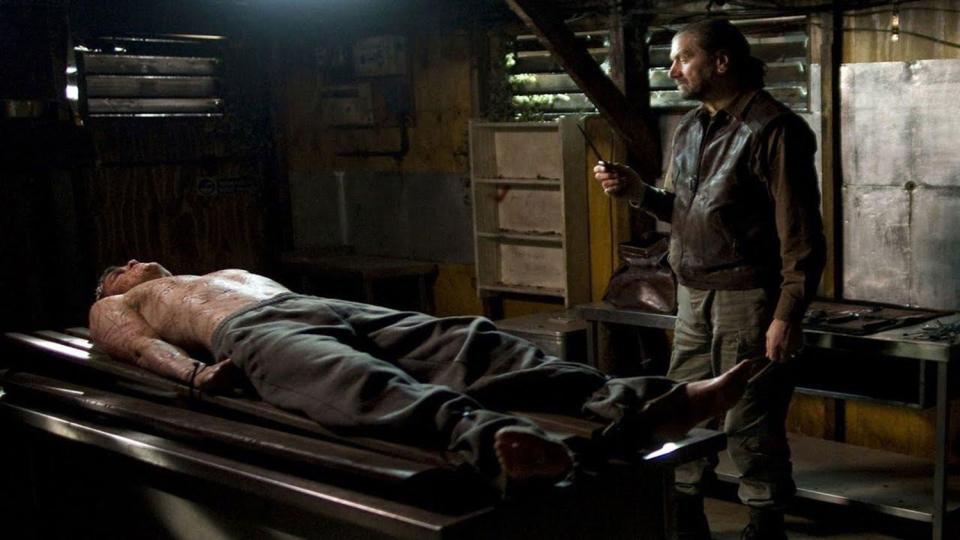
13. <em>Candyman III: Day of the Dead</em> (1999)
Based on Clive Barker's short story "The Forbidden," from Books of Blood: Volume Five (a.k.a. In the Flesh)
This straight-to-video threequel ends the original trilogy on a sour note, with a frankly bizarre plot that cribs the best elements of the previous two Candyman films whilst setting itself in a version of 2020 that has no discernible advancement in technology or fashion. Baywatch's Donna D'Errico steps into the lead as Caroline, a direct descendant of Daniel Robitaille (a.k.a. Candyman) whose own mother met her death at the madman's hook. Now, Candyman is back, hook hand and all, and after Caroline's roommate is gutted, she finds herself a suspect in the murders. Where have we seen that before?
Day of the Dead, like a few films on this list, is not so much bad as it is terribly generic. This is the epitome of a direct-to-video horror sequel from 1999, so lazy that it can't even be bothered to match basic continuity from the other films. It's just as well that the series didn't produce another direct sequel, or even another film, for 20 years after this. Had it kept going in this direction, it's likely that Candyman IV would've starred Jenny McCarthy, or perhaps even Sybil Danning. Tony Todd, who has admitted his displeasure with this installment, does exceptional work in the titular role as always; he was done dirtiest of all by the bargain-bin quality of Candyman II and III.
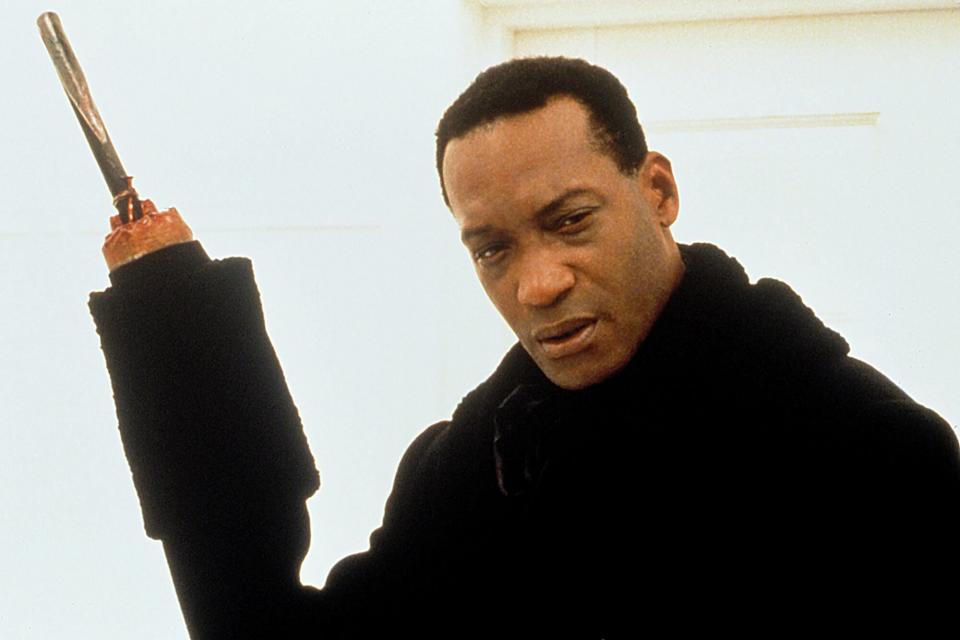
12. <em>Quicksilver Highway</em> (1997)
Based, in part, on Clive Barker's short story "The Body Politic," from Books of Blood: Volume Four (a.k.a. The Inhuman Condition)
Barker's short story, about a man whose hands gain sentience and rebel against him with predictably violent results, serves as one half of the inspiration for this tedious made-for-TV anthology, the first part of which is an adaptation of Stephen King's psycho-hitchhiker tale "Chattery Teeth." (The stories have been swapped, somewhat ill-advisedly, on home media versions of the film.) The framing device concerns Christopher Lloyd's Aaron Quicksilver, a showman who prowls the highways in a limo seeking unfortunate travelers to whom he may regale tales of woe. In this case, it's a newlywed couple suffering a bout of car trouble in an isolated patch of desert.
The director is Mick Garris, who has more or less made a career out of adapting King's work, amongst them Sleepwalkers, Riding the Bullet, and The Shining (miniseries, not masterpiece). His direction here is uninspired, the kind of washed-out, point-and-shoot style that was synonymous with TNT or USA Network productions around this time. Ultimately, Quicksilver Highway feels like a pilot for an anthology series starring Lloyd's limo-dweller rather than a self-contained film. As a result, the pace never truly takes off, and often we question why we're watching stories that are staged like a truncated episode of Tales From the Crypt, but without any of the punch that series has, instead of developing the slightly more colorful world that Lloyd's Quicksilver inhabits.
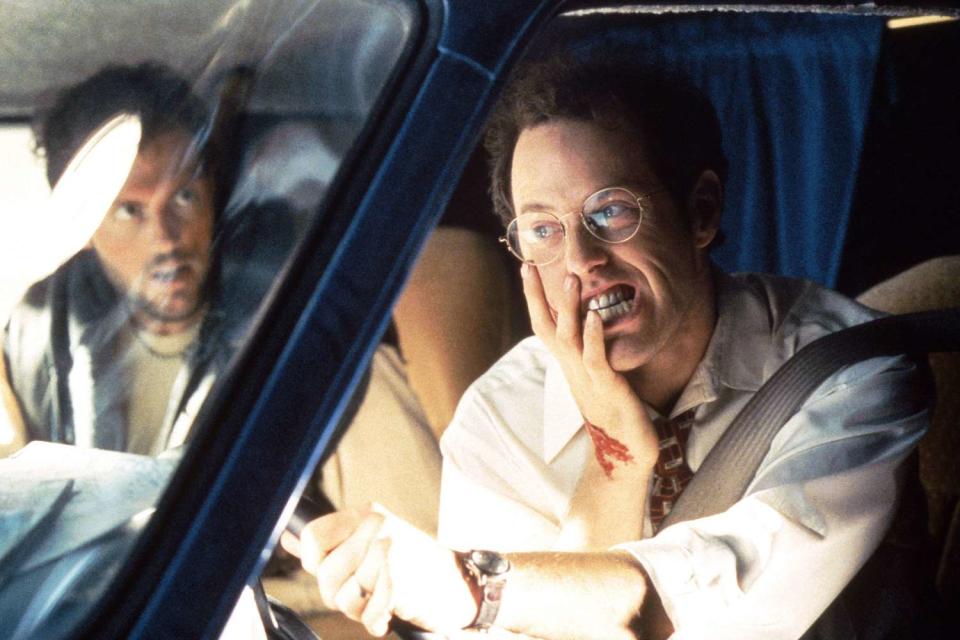
11. <em>Candyman II: Farewell to the Flesh</em> (1995)
Based on Clive Barker's short story "The Forbidden," from Books of Blood: Volume Five (a.k.a. In the Flesh)
Bill Condon, the now-respected director behind 1998's Gods and Monsters (of which Barker was also an executive producer) as well as 2019's delightfully twisted The Good Liar, directed this follow-up to Bernard Rose's 1992 movie. The influences of Barker's story and Rose's original are all here, and you can certainly see some of the singular style Condon would refine later in his career, but the film suffers from the same staccato rhythms of his debut feature — and is a mess overall.
With the exception of Tony Todd and, briefly, Michael Culkin, none of the actors from the first film return for this story of school teacher Annie (Kelly Rowan) who is beset by the Candyman after he has killed her father and framed her brother (Michael Bergeron) for the murder. As Annie's boozy mother with more than a few secrets, Veronica Cartwright ties the movie up in a bow, sticks it in her purse, and walks right away with the entire production, her performance giving a keen glimpse at what Condon was going for. Meanwhile Todd is given barely enough screen time to register as a threat, leaving audiences to spend an inordinate amount of time with characters that possess none of the zeal or pathos the ones in the original Candyman did. Some praise is due, however, for the flashback to Candyman's demise that comes near the end. It's a sequence Condon makes as nauseating and horrific as it should be. It's just a shame that its edgy ingenuity didn't stretch to the rest of the film.
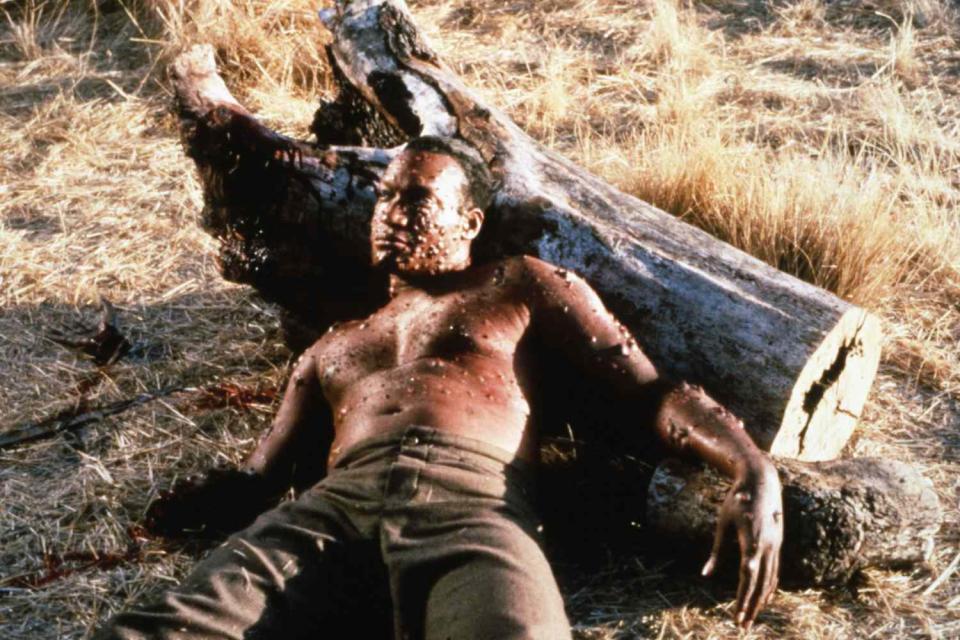
10. <em>Saint Sinner</em> (2002)
Produced by Clive Barker and adapted from the Marvel comic "Saint Sinner," also created by Barker
In 1815 California, young monk Brother Tomas (Greg Serano) releases from an ancient statue two female succubi (Rebecca Harrell and the late Mary Mara), who travel to the 21st century using a "Wheel of Time" contained within the walls of the monastery. Tomas follows the succubi into 2002, where he tracks their unwitting victims but is stymied by a detective (Showgirls' Gina Ravera, truly nailing it) that believes Tomas is responsible for the murders.
Barker decided to re-adapt his series of comics for a new medium after his disappointment with Marvel's handling of the original run — and it's a great pleasure that he did. If you can get past the Syfy channel look of it all (it was, indeed, made for Syfy, then known as Sci-Fi Channel), this is actually a pretty fun and clever little time travel movie that eventually morphs into something approaching Fraggle Rock as directed by David Cronenberg. Whatever Saint Sinner may be lacking in general production values, it makes up for with its giddy, go-for-broke theatrics and the utter commitment of the actors, who take a script that could easily slip into nonsense and make it sing to the balcony.
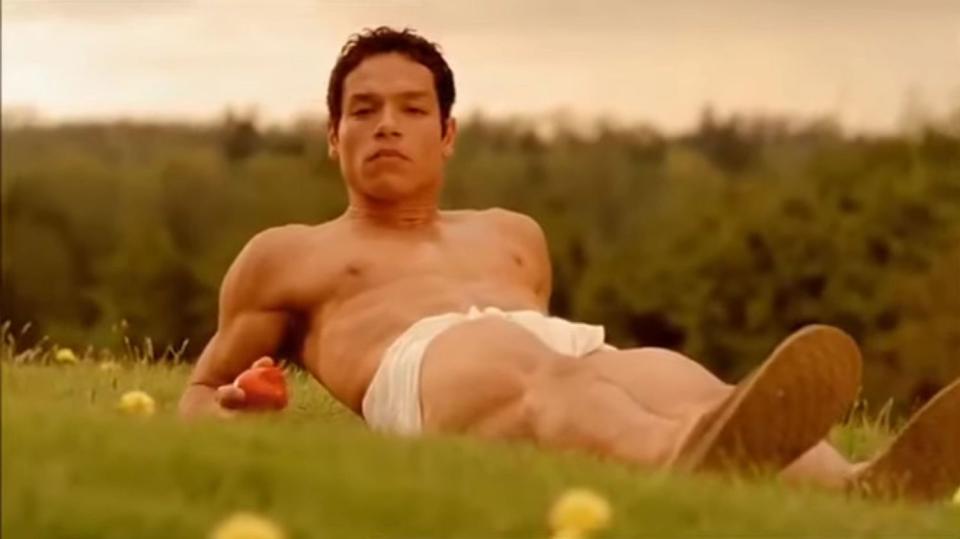
9. <em>Candyman</em> (2021)
Based on Clive Barker's short story "The Forbidden," from Books of Blood: Volume Five (a.k.a. In the Flesh)
There are some things to like about this Jordan Peele-produced reboot-cum-sequel to Bernard Rose's Candyman from 1992, but ultimately it feels like too much of a muddle to succeed on its own. (Distressingly, the strongest passage of the film is actually what occurs during the end credits.) Directed by Nia DaCosta, whose first feature, the thriller Little Woods, was one of the best films of 2018, Candyman teeters uncomfortably between a brainless slasher movie, winking social satire, and character-driven horror.
Leah Greenblatt, in her review for EW, writes that DaCosta's Candyman is "roughly 90 minutes" of watching "these incongruous aims bob and weave into each other's lanes: the squishy bits of jump-scare butchery bumping up against the sharper edges of sociopolitical currency." One could see those combinations working well if Peele had directed, but here they play as individual scenes, never meshing into a coherent whole. DaCosta is a formidable director, but here the material seems to have gotten away from her.
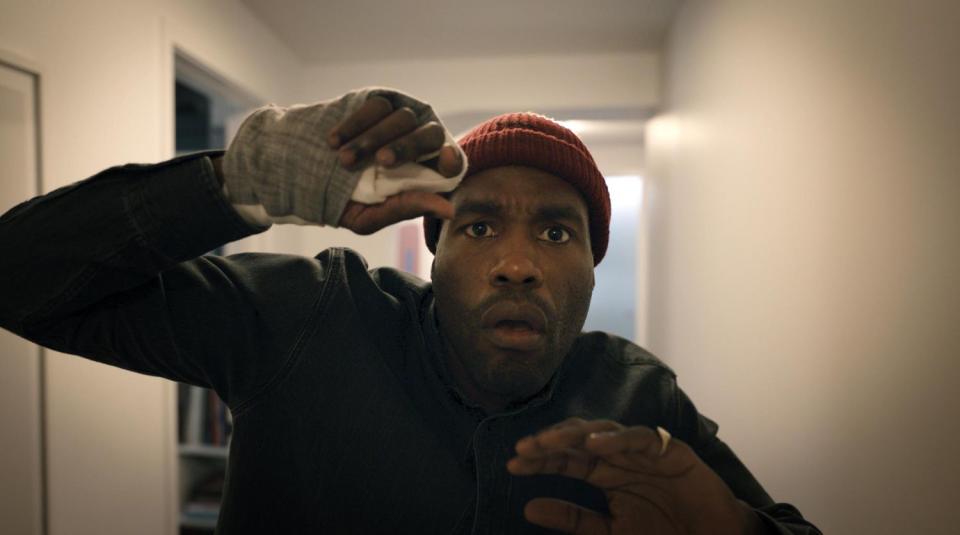
8. <em>Hellraiser</em> (2022)
Produced by Clive Barker from his 1986 novella The Hellbound Heart
After a slew of sequels, the Hellraiser franchise was finally rebooted with this new interpretation of The Hellbound Heart for the modern age. This one centers on Riley (Odessa A'zion), a young woman recovering from drug addiction who finds the treacherous mechanical box and unleashes the Cenobites, a group of demonic humanoids who demand a human sacrifice. Following this encounter, her brother finds her but is inadvertently wounded by the box and disappeared by the Cenobites, causing Riley to do whatever is necessary to bring him back.
Cleverly weaving in Riley's perilous pursuit with her own addictions, Hellraiser is emblematic of the modern horror landscape, in which personal traumas are explored through the supernatural. That, plus a deep dive into the mythology of the Cenobites and a deliberate pace make for a divisive watch. But few would argue with Jamie Clayton's chilling portrayal of the Priest (a.k.a. Pinhead), the villainous Cenobite leader. As director David Bruckner told EW of casting Clayton, "She was scary as hell! Honestly, it was the most frightening read that I had seen by a mile." —Kevin Jacobsen
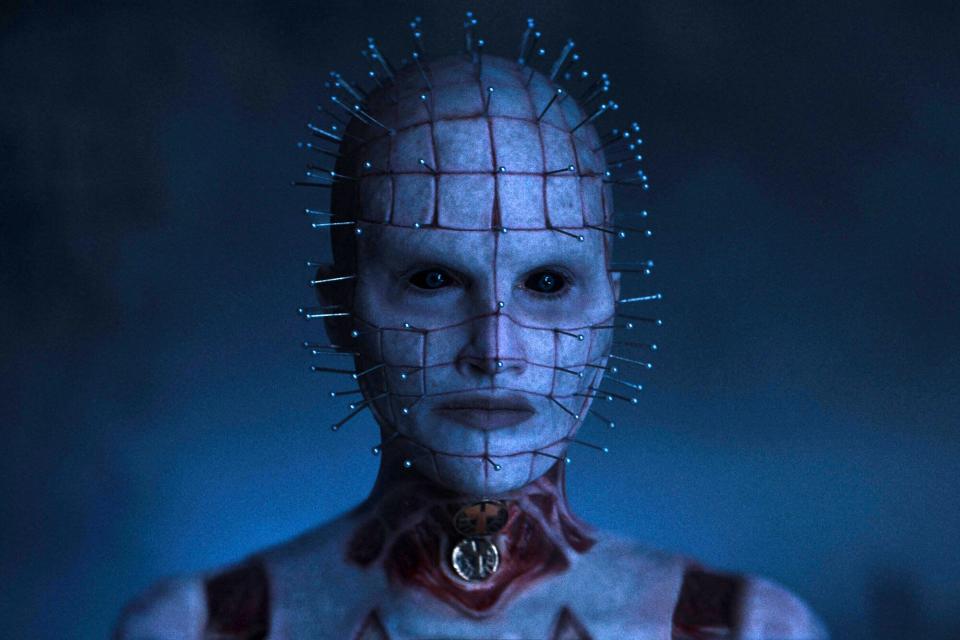
7. <em>Books of Blood</em> (2020)
Based, in part, on Clive Barker's short stories "The Book of Blood" and "On Jerusalem Street (A Postscript)," from Books of Blood: Volume One and Books of Blood: Volume 6 (a.k.a. Cabal), respectively
Barker's two stories comprise the best part of Brannon Braga's made-for-Hulu anthology film; the remaining third is an original story, written by Braga and his co-screenwriter Adam Simon. The wrap-around story, based on "Jerusalem Street," finds debt-collector Bennett (Rafi Gavron) traveling to a haunted town to track down the Book of Blood, a rare book worth a veritable fortune. Books of Blood has a relatively passable success rate for an anthology film, but it makes some puzzling choices along the way. Namely, the decision to choose two Barker stories and then insert an original has a negative impact overall. There doesn't seem to be a defined reason why this particular story — which stars Britt Robertson as a troubled young woman who goes to live at a twisted halfway house — needed to be included in this film at all.
Speaking about Books of Blood solely in comparison to 2009's Book of Blood, this movie is Citizen Kane. Anna Friel stars as Mary Florescu in what ends up being a far more emotionally resonant, and compact, adaptation of Barker short story "The Book of Blood" than the previous cinematic outing. The wrap-around is well-played, too, and one of the things that sets Books of Blood apart from a thousand other horror anthologies is the smart but un-showy way in which it ties all of the stories together in the end. That does, however, make it all the more disappointing that Books of Blood did not go all the way and adapt three Barker stories.
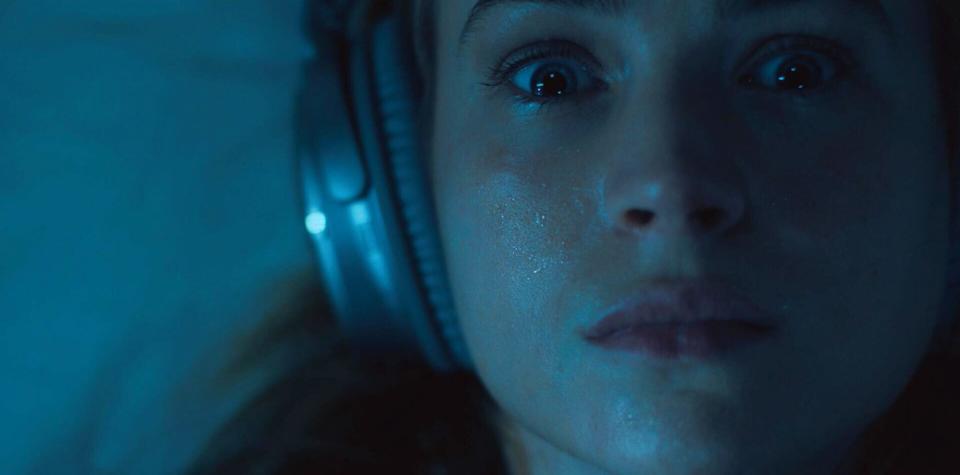
6. <em>Lord of Illusions</em> (1995)
Directed by Clive Barker and based on his short story "The Last Illusion," from Books of Blood: Volume 6 (a.k.a. Cabal)
Clive Barker's sun-drenched L.A. noir-meets-sun-drenched-supernatural-occult thriller stars Scott Bakula as Harry D'Amour, a private eye who specializes in all things possessed or otherwise demonic. An insurance fraud case brings Harry to Hollywood, where he becomes aligned with the mysterious magician Phillip Swann (Kevin J. O'Connor) and his femme-fatale — or is she? — wife Dorothea (Famke Janssen). When one of Swann's tricks results in a gruesome accident, D'Amour and Dorothea are launched on an odyssey that bridges the world between illusions and magic, leading back to a Manson-esque desert cult ruled over by Swann's former mentor, Nix (Daniel von Bargen).
Lord of Illusions is, to date, Barker's last time in the director's seat. Yet more interference with the final product on behalf of the studio shed the film of most of its character and plot development and chased Barker out of Hollywood for good. The result is a film that, despite its tantalizing story and a handful of effective moments, feels rightfully compromised. Much like several other titles on this list, the haphazard editing in the hopes of appealing the film to a mainstream cinema crowd robs Lord of Illusions of much of its context. If you've read the book upon which this film is based, it's easier to see Barker's intent; if you're coming into Lord of Illusions blind, it may be hard to decipher. In the end, the greatest emotion that Lord of Illusions provokes is hope that, someday, Barker will have a chance to direct another film, and will finally be allowed utter control over his vision.
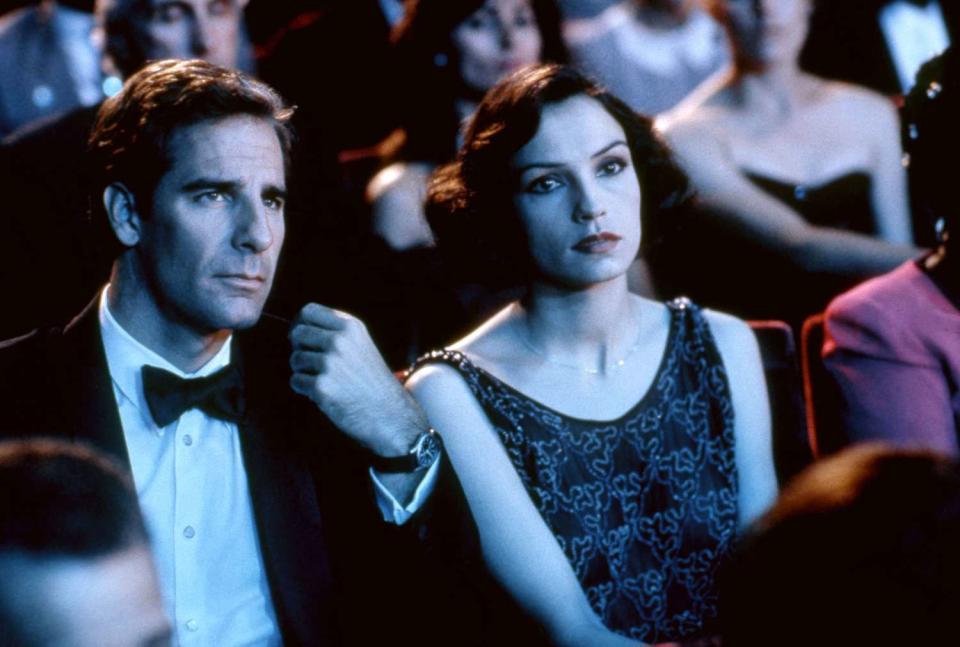
5. <em>Rawhead Rex</em> (1986)
Written by Clive Barker and based on his short story of the same name from Books of Blood: Volume 3
Whilst American professor Howard Hallenbeck (David Dukes) and his family enjoy a working vacation in idyllic Dublin, a thunderstorm strikes the grave of Rawhead Rex, reincarnating the ancient demon who proceeds to go on a hungry tear across Ireland. Directed by George Pavlou, who had previously collaborated with Barker on Transmutations (a.k.a. Underworld, 1985), Rawhead Rex is an unspeakably silly — albeit largely faithful — adaptation of Barker's short story.
It's also unabashedly entertaining, a prime example of when late '80s cheese collided with subversive horror to whip up an intoxicating mélange. No one is safe from Rawhead's jaws, least of all unassuming children enjoying their holiday, as this gleeful nihilism blends improbably well with the lush Irish landscape. Barker was unhappy with the film despite its close relation to his original tale. He felt that Pavlou's direction was missing the necessary impact to drive home the horror sequences in the picture. That may be true — the direction here is certainly untraditional for a horror picture — but it's worthy of more praise than it often gets. Rawhead Rex is a well-constructed film, even if it isn't wholly effective in its intent.
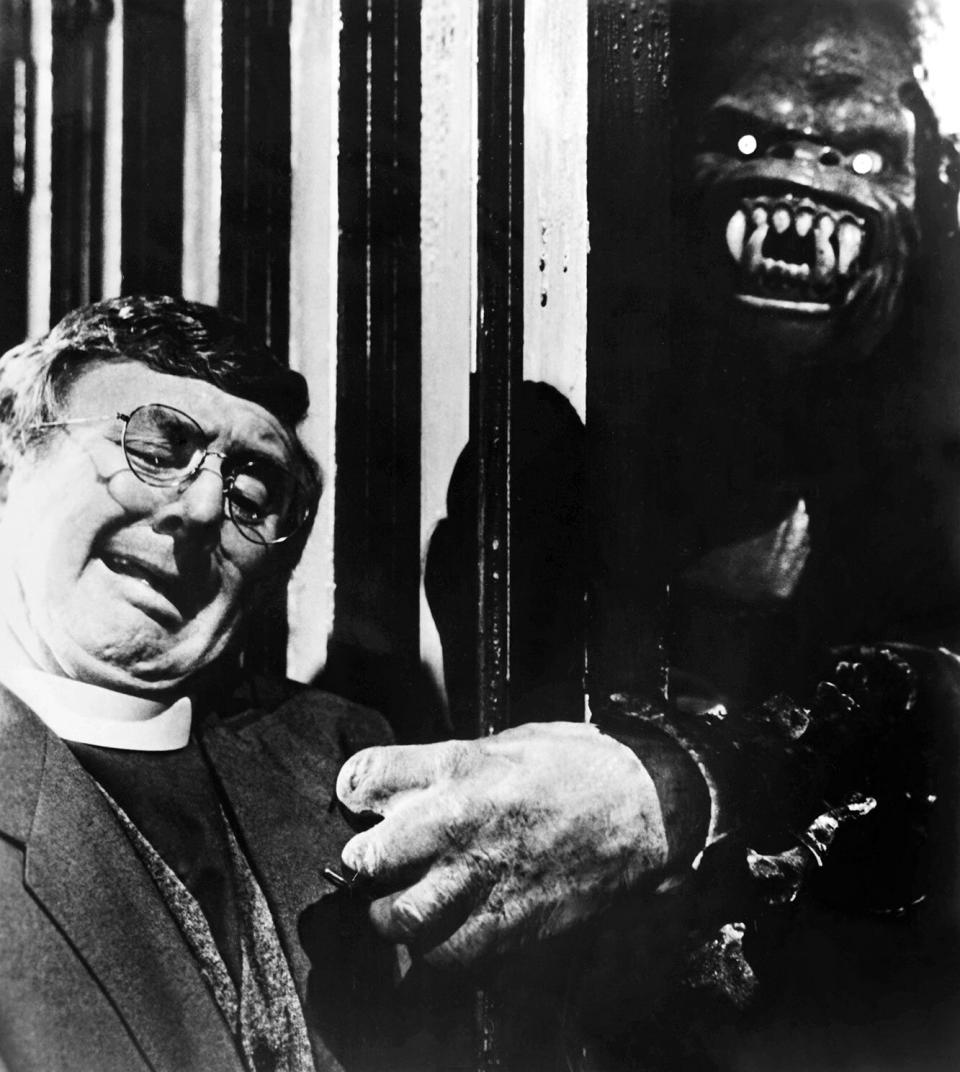
4. <em>The Midnight Meat Train</em> (2008)
Produced by Clive Barker and adapted from his short story of the same name from Books of Blood: Volume One
Bradley Cooper stars as Leon, an inner-city photographer who one night saves a young woman from a group of toughs on a subway platform. When Leon awakes the next morning and sees that she went missing after boarding the train, he begins an investigation along with his girlfriend, Maya (Leslie Bibb, splendid here), into the local butcher (Vinnie Jones) whom they believe has something to do with the rash of subway disappearances.
The Midnight Meat Train is an oft-overlooked horror film of the 2000s and a simultaneous delight for genre fanatics, even if our critic didn't initially agree upon its release. Ryuhei Kitamura's energetic production comes the closest to matching the operatic spectacle of Candyman than any other Barker adaptation. It's absolutely vibrating with gruesome invention; it has to be one of the bloodiest movies ever made, and also one of the most creatively violent. Kitamura has made fine movies before and after this, but here something congealed to create the perfect blend of baroque schlock and grounded realism. Of course, being a Clive Barker adaptation, the studio was unhappy with the finished product. However, the controversy behind The Midnight Meat Train's release has only strengthened its cult status.

3. <em>Candyman</em> (1992)
Based on Clive Barker's short story "The Forbidden," from Books of Blood: Volume Five (a.k.a. In the Flesh)
Bernard Rose's elegant and haunting original (aided by Phillip Glass' impeccable gothic score) continues to out-measure its successors in terms of quality by some distance. Virginia Madsen stars as Helen Lyle, a graduate student studying urban myths who turns her attention to the "Candyman," a mysterious spirit who reportedly haunts the Cabrini-Green low-income housing, and who materializes if you say his name five times in front of a mirror.
Candyman is as close to being a perfect horror film as you could reasonably get, and one of the most successfully restrained interpretations of Barker's work. There is a real beauty to this film; in the pure horror of its terror sequences, the ghastly viciousness of Candyman's murders, but also in the humane details that Rose allows which often elude less-assured horror filmmakers. The friendship between Helen and her classmate Bernie (Kasi Lemmons) is unusually warm and well-drawn for the slasher genre. It would be sacrilege not to mention Tony Todd's titular performance; with a limited amount of screen time, he creates a villain that is part Frasier Crane, part Freddy Krueger, yet entirely his own. And the scenes in which he and Madsen engage in intellectual battles-of-wits are the best in the picture.
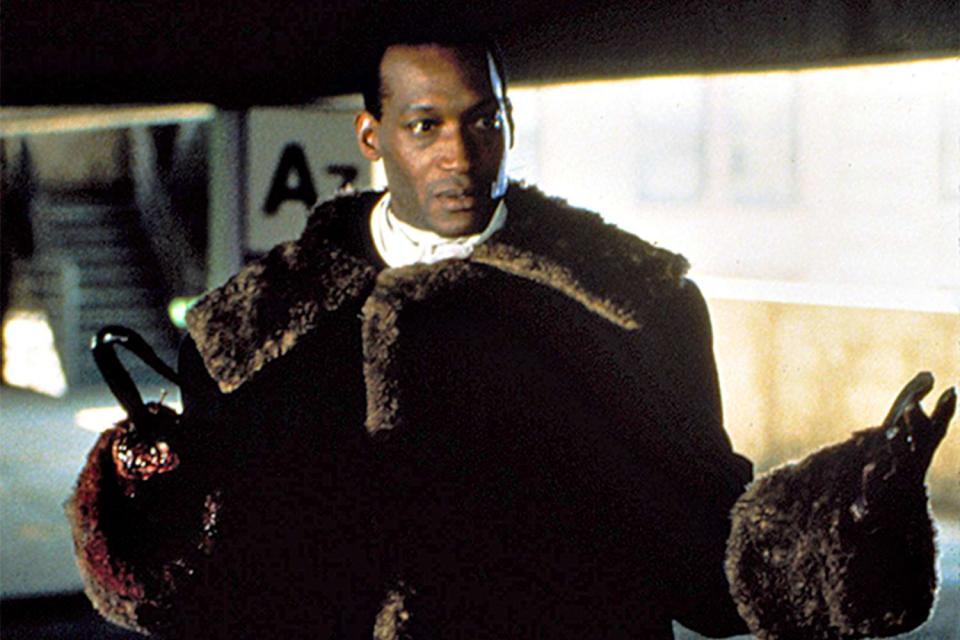
2. <em>Nightbreed: The Director's Cut</em> (1990)
Written, directed, and adapted by Clive Barker from his 1988 novella Cabal
Aaron Boone (Craig Sheffer) finds himself under the care of the serial-murdering Dr. Decker (one David Cronenberg), who convinces Aaron that he is in fact the murderer and slips him a secret dose of LSD so that he will turn himself in to the authorities. But on his way, Boone is injured in an accident and takes refuge in the underground world of Midian, which is inhabited by monsters called "Nightbreed."
Barker's trippy underworld creature feature was admittedly the filmmaker's stab at a "Star Wars for monsters." Were the film not mishandled and recut by the studio (an unfortunate recurring element in Barker's film career) it could have easily spawned a franchise so inventive and singular as Barker's vision here. Nightbreed is a dark fantasy for adults, a genre that is rarely done at all, let alone well. Barker manages to strike a delicate balance between a heartfelt, human story while still having a ball with the more outrageous elements of the narrative. At its best, it feels like a cross between Labyrinth and an early Peter Jackson film. After Morgan Creek, the studio bankrolling the picture, found themselves unsatisfied with Barker's original cut, they re-edited the film to focus more on the slasher elements with Cronenberg's character as well as standard police-procedural filler. But thankfully in 2014, Barker's director's cut was released, restoring 20 minutes of footage to the original running time of 102 minutes.
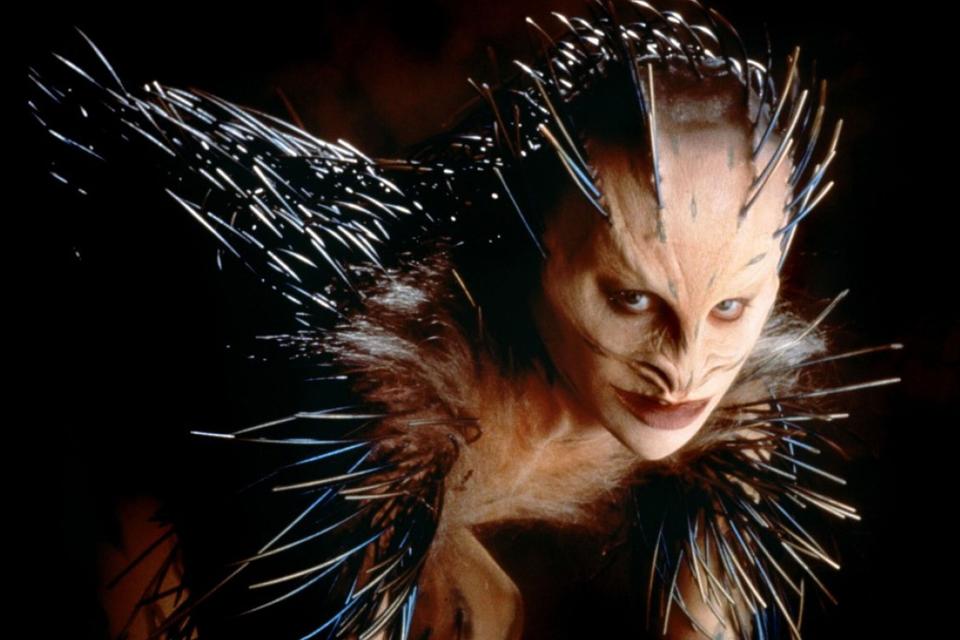
1. <em>Hellraiser</em> (1987)
Written, directed, and adapted by Clive Barker from his 1986 novella The Hellbound Heart
Clive Barker's directorial debut may very well be the best body-horror film ever made, in part because it is so consistently freakish in more ways than one. Larry Cotton (Andrew Robinson) moves with his daughter Kirsty (Ashley Laurence) and wife Julia (Clare Higgins) to his brother Frank's (Sean Chapman, and later, in his monstrous form, Oliver Smith) home with the hopes of repairing his marriage. Unbeknownst to Larry, Julia had an affair with Frank and continues to pine for him, even after his mysterious disappearance. When Julia finds Frank in the attic, sans skin but (to her) attractive as ever, Julia begins finding local barflies to bring back to Frank in order to restore his body and ensure their future together.
If you've seen Hellraiser, you're well aware of what happens from there; if you've not seen Hellraiser (yet), there will be no spoilers here. Watching Barker's film for the first time is one of the great cinematic experiences, and it should be entered into with as little advanced knowledge as possible. In its most recent restoration, the film absolutely glows; Bob Keen's special makeup effects are breathtaking, a masterclass in the craft. Barker's staggering invention when it comes to sequences of mayhem will have any effects fan on the edge of their seat, giddy as any 11-year-old waiting to behold the next gore gag. Above all, Hellraiser is a disturbing, serious-minded horror movie made for adult audiences, yet it's also one of the most fun-loving films in its genre — and Barker's best work to date.
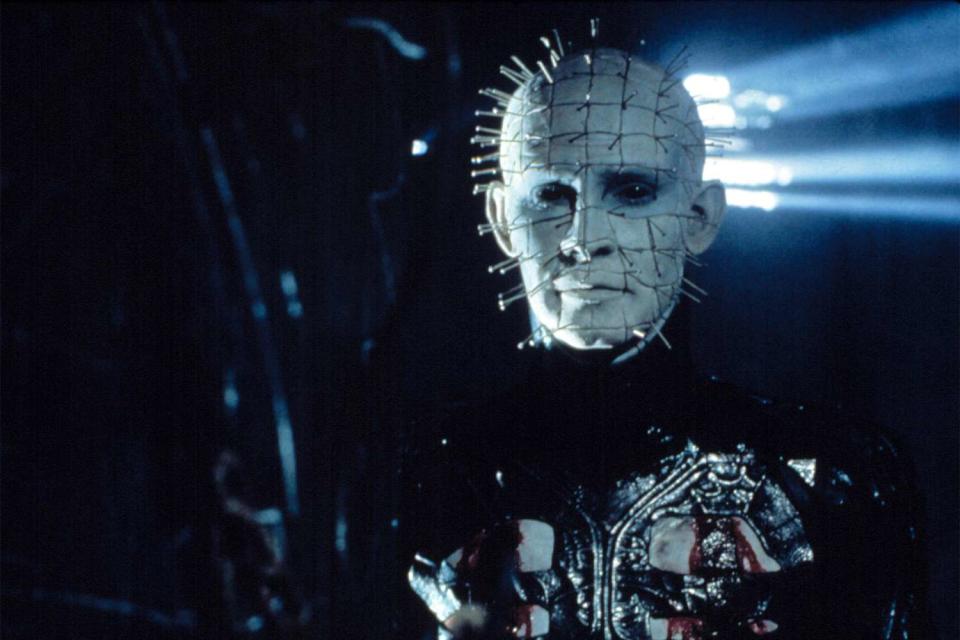
Related content:

